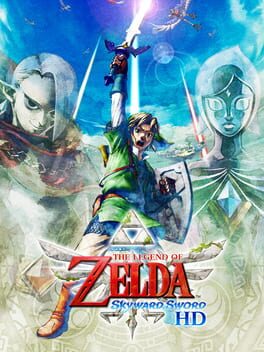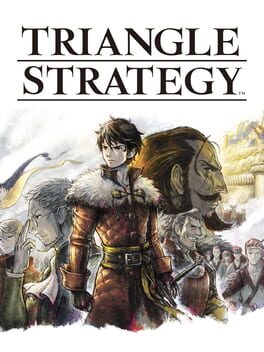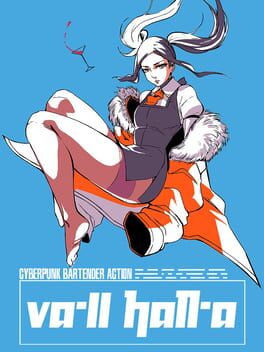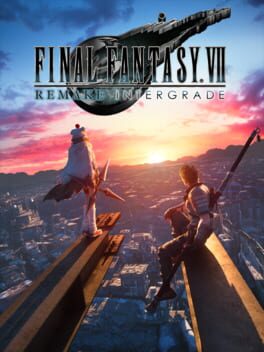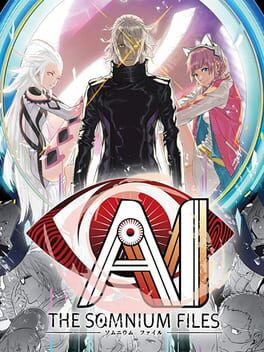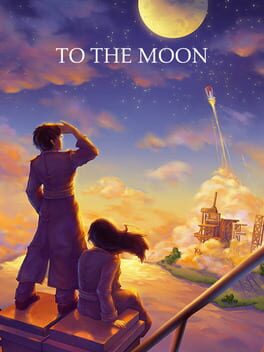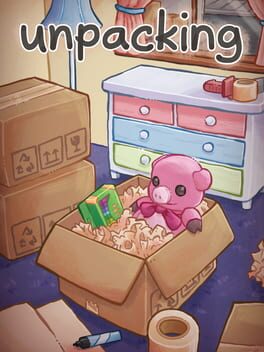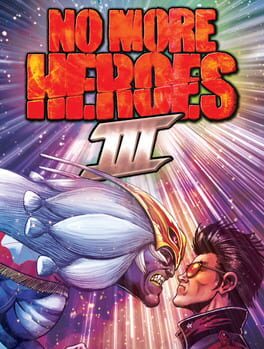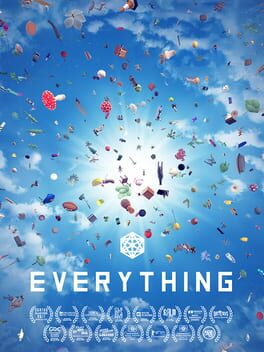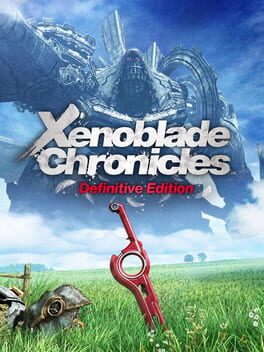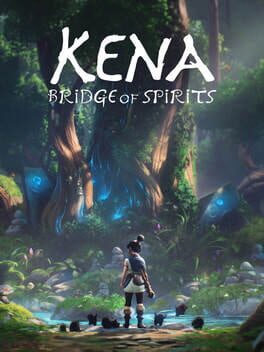typ0wer
114 Reviews liked by typ0wer
Skyward Sword has a uncharacteristically intimate and emotional story from the Zelda franchise. Set amongst the typical world ending fare, the relationship between Link and Zelda as well as all of the other lovable individuals throughout Skyloft and Hyrule is worth playing the game alone and makes great use of its longer runtime to get the player to meet and help every single one. Skyloft itself is a great hub that gets more dense with content as you start to unravel it, and traveling back to it after every new plunge below the sky was relaxing and felt like coming home. The dungeons, like much of the game, are very linear but provide an excellent balance of combat and clever puzzles that overall make great use of the entire roster of items you acquire. Traveling to those dungeons is a small chore, however, as flying never feels as freeing as you'd like, and you cannot fast travel between points in a location. Combat is a solid element of Skyward Sword, tied mostly to its heavy motion control basis. The directional sword swings make enemies feel more threatening, and clever enemies really throw a wrench into the mechanics. On Switch, the game's motion controls stayed stable, with resyncing needing to occur every minute or so, thankfully possible with the push of a button. Button control alternatives felt strange in most circumstances, but were necessary alternatives for some parts (free diving, some minigames). I reccomend using motion controls as often as possible. The game also suffers from repetition. While it didn't bother me as much as my first run, Skyward Sword uses similar environments in new, clever ways. While I enjoyed every switch-up, I wish there was at least one new area to add to the monotony of what little exploration and traversal there is presently. I love systems like the weapon upgrades and the pouch mechanics, but wish that others like the bugs and dousing were more useful to the overall experience. At the end of the day, Skyward Sword was a blast to play and it's well worth giving a shot if you like any previous Zelda experiences and never got a chance to finish this one.
Triangle Strategy
2022
This review contains spoilers
Triangle Strategy
If you are not a friend oft he written word read no further, for Triangle Strategy will be nothing but a dusty game cartridge in your collection. A large part of the game is not spent „playing“ but rather „reading“ it, with that warning out of the way Triangle Strategy crafts an engaging narrative intervined with smart strategy maps and dull playable intermezzos.
From the minds of the aptly named Octopath Traveller strategy fans can finally sink their teeth in the even more aptly named Triangle Strategy. While Octopath confronts the player with a turn based JRPG (including 8 different tutorial areas, hence the Octo) Triangle strategy instead focuses on one short 4 hour tutorial. In this sense, if Acquire ever wants to release a racing game, i would highly recommend „Slow start Cart“ as the title oft he to preserve not only the naming convention but also the early game pacing of the previous two projects. Back to Triangle Strategy, after its lengthy introduction the game picks up in speed and quality, for some players that will be to little to late tho.
But is it really worth to stomach the first hours of boring exposition and lenghty exposition for a mediocre Strategy game? Yes, Triangle strategy combines 3 undeniable aspects, a highstakes narrative that is not pulling any punches, polished and balanced strategy gameplay that stays engaging throughout your whole playthrough and the ability to play the game on the toilet or in bed in case you fall asleep.
You take the place of country noble (in fact the most noble of all the nobles) Serenoa Wolffort and his entourage. While the continent of Norzelia may be peaceful at the beginning of the game political intrigue soon engulves the whole continent in war. Your job as the new head of your house is to defend you territory, forge alliances and to not get slaughtered by the ofter overwhelming armies. While sounding cliche on paper the narrative works because it takes itself seriously. Characters die and do not return, actions have sound motivations and significant character development takes place. Furthermore gameplay and narrative go hand in hand. A character is said to be the strongest person on the continent, that means on the battle map he can handle four soldier goons at once (which is a lot. On the flip side an enemy general far stronger than you can be bought to his knees with the clever use of a trap. Your characters are human, the enemy is human and smart choices and planning is super man.
Throughout the adventure the player will have to make difficult choices, will you go to the Saudi Arabia like state or would you rather visit the UDSSR instead? Some choices lead to different scenarios, new recruitable characters or relevant story information. To take the path of your choice you have to „convince“ your party to follow your choice, which is often more tedious than engaging. Stroll through the nearby JRPG town, fortress or settlement and use information you get from the locals to change the opinion of your crew. Overall that is something that in my opinion could have been cut, if i need to convince my allies through dialog text boxes give them to me upfront so i dont have to stumble through barebones places to find them.
At least the (triangle) strategy gameplay leaves little to be desired (for fans of the genre at least). Units are vastly different and range from predefined archetypes, such as warrior, archer, mage and healer to more unique classes such as a weather shaman or Torbjörn from overwatch. Level and stats are key, to improve your characters you can equip them with various bling, upgrade their weapons or classes. Most of these options only result in a number going up but can also result in a new combat ability. Beside the story maps there are optional mock combat maps to level up your characters and acquire otherwise scarce upgrade material. Optional maps do not have the same thought and quality as the story maps and have more of a grindy feel, i recommend them if you feel the need to grind for a story chapter without changing the difficulty which may be the better option in most cases.
Story chapter are the clear gameplay highlight of the game. Most of them have different (actual fun) objectives with, cleverly positioned enemy units as well as different altitudes. The overall enemy variety is sadly not as great as your own unit variety. Positioning matters a lot, backstabs are automatic crits and flanking gets rewarded with additional attacks. Keep in mind, Triangle Strategy enemies just wait for the opportunity to use these tactics against you. Your characters may use special maneuvers to buff, heal or attack in various ways. A simple energy system prevents you from spamming your hyper beam cannon every turn. Most battles feel challenging yet fair, the outcome is (most of the time) decided by carefull planing instead of a single character manhandling the entire enemy army. Special mention for the interaction of different element spells with the environment, fire ignites grass, iron plattforms or rails conduct electricity and frozen plattforms slow the movement of allies and enemies alike.
Sound, artstyle and presentation can be described with the german proverb „kann nicht meckern“. Triangle Strategy does not look impressive on the big screen and i had trouble reading the dialogue (perhaps i need glasses?). Handheld performance is ok as long as you dont cast a fire spell. Music is good but i would not go back to listen to any particular song. Highlights are the character potraits, sadly you see them not often enough.
Overall Triangle Strategy is good but tedious. Engaging and challenging battle maps are offset by dull extra chapters, the thrilling story with twists and turns gets interrupted by mostly uninteresting town sequences. If you arent interested in the narrative part of the game the strategic aspect will have a hard time to salvage the rest of your experience. But do not be discouraged, if you managed to read this far through my second-hand pensmanship then Triangle Strategy will offer you not only a meaty story but also a nice strategy gameplay with brilliant maps as a sidedish.
If you are not a friend oft he written word read no further, for Triangle Strategy will be nothing but a dusty game cartridge in your collection. A large part of the game is not spent „playing“ but rather „reading“ it, with that warning out of the way Triangle Strategy crafts an engaging narrative intervined with smart strategy maps and dull playable intermezzos.
From the minds of the aptly named Octopath Traveller strategy fans can finally sink their teeth in the even more aptly named Triangle Strategy. While Octopath confronts the player with a turn based JRPG (including 8 different tutorial areas, hence the Octo) Triangle strategy instead focuses on one short 4 hour tutorial. In this sense, if Acquire ever wants to release a racing game, i would highly recommend „Slow start Cart“ as the title oft he to preserve not only the naming convention but also the early game pacing of the previous two projects. Back to Triangle Strategy, after its lengthy introduction the game picks up in speed and quality, for some players that will be to little to late tho.
But is it really worth to stomach the first hours of boring exposition and lenghty exposition for a mediocre Strategy game? Yes, Triangle strategy combines 3 undeniable aspects, a highstakes narrative that is not pulling any punches, polished and balanced strategy gameplay that stays engaging throughout your whole playthrough and the ability to play the game on the toilet or in bed in case you fall asleep.
You take the place of country noble (in fact the most noble of all the nobles) Serenoa Wolffort and his entourage. While the continent of Norzelia may be peaceful at the beginning of the game political intrigue soon engulves the whole continent in war. Your job as the new head of your house is to defend you territory, forge alliances and to not get slaughtered by the ofter overwhelming armies. While sounding cliche on paper the narrative works because it takes itself seriously. Characters die and do not return, actions have sound motivations and significant character development takes place. Furthermore gameplay and narrative go hand in hand. A character is said to be the strongest person on the continent, that means on the battle map he can handle four soldier goons at once (which is a lot. On the flip side an enemy general far stronger than you can be bought to his knees with the clever use of a trap. Your characters are human, the enemy is human and smart choices and planning is super man.
Throughout the adventure the player will have to make difficult choices, will you go to the Saudi Arabia like state or would you rather visit the UDSSR instead? Some choices lead to different scenarios, new recruitable characters or relevant story information. To take the path of your choice you have to „convince“ your party to follow your choice, which is often more tedious than engaging. Stroll through the nearby JRPG town, fortress or settlement and use information you get from the locals to change the opinion of your crew. Overall that is something that in my opinion could have been cut, if i need to convince my allies through dialog text boxes give them to me upfront so i dont have to stumble through barebones places to find them.
At least the (triangle) strategy gameplay leaves little to be desired (for fans of the genre at least). Units are vastly different and range from predefined archetypes, such as warrior, archer, mage and healer to more unique classes such as a weather shaman or Torbjörn from overwatch. Level and stats are key, to improve your characters you can equip them with various bling, upgrade their weapons or classes. Most of these options only result in a number going up but can also result in a new combat ability. Beside the story maps there are optional mock combat maps to level up your characters and acquire otherwise scarce upgrade material. Optional maps do not have the same thought and quality as the story maps and have more of a grindy feel, i recommend them if you feel the need to grind for a story chapter without changing the difficulty which may be the better option in most cases.
Story chapter are the clear gameplay highlight of the game. Most of them have different (actual fun) objectives with, cleverly positioned enemy units as well as different altitudes. The overall enemy variety is sadly not as great as your own unit variety. Positioning matters a lot, backstabs are automatic crits and flanking gets rewarded with additional attacks. Keep in mind, Triangle Strategy enemies just wait for the opportunity to use these tactics against you. Your characters may use special maneuvers to buff, heal or attack in various ways. A simple energy system prevents you from spamming your hyper beam cannon every turn. Most battles feel challenging yet fair, the outcome is (most of the time) decided by carefull planing instead of a single character manhandling the entire enemy army. Special mention for the interaction of different element spells with the environment, fire ignites grass, iron plattforms or rails conduct electricity and frozen plattforms slow the movement of allies and enemies alike.
Sound, artstyle and presentation can be described with the german proverb „kann nicht meckern“. Triangle Strategy does not look impressive on the big screen and i had trouble reading the dialogue (perhaps i need glasses?). Handheld performance is ok as long as you dont cast a fire spell. Music is good but i would not go back to listen to any particular song. Highlights are the character potraits, sadly you see them not often enough.
Overall Triangle Strategy is good but tedious. Engaging and challenging battle maps are offset by dull extra chapters, the thrilling story with twists and turns gets interrupted by mostly uninteresting town sequences. If you arent interested in the narrative part of the game the strategic aspect will have a hard time to salvage the rest of your experience. But do not be discouraged, if you managed to read this far through my second-hand pensmanship then Triangle Strategy will offer you not only a meaty story but also a nice strategy gameplay with brilliant maps as a sidedish.
From the creator of the Zero Escape Trilogy, AI: The Somnium Files seems to promise another reality-warping mystery across parallel timelines to solve a murder mystery, and while expectations may have been set too high, the game ultimately delivers a fun, but flawed experience through my time with it.
You play as Kaname Date, an investigator tasked with solving the murder of a close friend, with all of your close allies quickly being brought into suspect. The game is primarily a visual novel style, with some dialogue choices and limited interaction within an environment. The writing is funny and constantly dropping hints, clues, and deceptions at every corner. The wide range of characters aid this balancing act, and most of them are enjoyable to see in every scene, from the mysterious idol A-Set to the drag queen barkeep Mama. While I love interfacing with the cast, I wish I felt like I was doing more detective work, rather than letting it all happen. Much of the big reveals are about finding the correct object to interact with, and there are so few interrogation and action sequences that it felt lacking in that department. Additionally, the dialogue tends to swing pretty sexual in some uncomfortable places, and while other characters rightfully call it out, the perverse nature of some conversations are not the game's brightest moments.
When Date is not searching for clues in the real world, he uses his AI partner Aiba to analyze the Somnium, dream states of other characters in the story. These are essentially your escape rooms from the Zero Escape games, just way more abstract. Under a six minute time limit, there is usually a vague goal to achieve, and you are tasked with manipulating objects in the dreamscape to progress and figure out secrets hidden by the dreamer. Some of the Somniums are fun hyper-logic puzzles, attempting to test the player with prior knowledge of the case, while others are a major test of trial and error. Narratively, many of the Somniums don't pay off very well, and the TIMIE mechanic, to help reach your goals in under six minutes is not explained well and feels underutilized. The mechanic could have easily crafted some devious and clever solves but instead feel like an unnecessary chore and narrative obstacle.
AI isn't the most massive game. Only a few locations make up the runtime of the game, and scenes are frequently repeated often to catch the player up with the latest revelations. All that said, the game mostly runs pretty solid and the music, UI, and overall design fit nicely in this futuristic mystery drama. I wouldn't suggest playing this game unless you've played (and enjoyed) the Zero Escape franchise, but if you are yearning for more mind-bending writing, there's no better place to continue.
You play as Kaname Date, an investigator tasked with solving the murder of a close friend, with all of your close allies quickly being brought into suspect. The game is primarily a visual novel style, with some dialogue choices and limited interaction within an environment. The writing is funny and constantly dropping hints, clues, and deceptions at every corner. The wide range of characters aid this balancing act, and most of them are enjoyable to see in every scene, from the mysterious idol A-Set to the drag queen barkeep Mama. While I love interfacing with the cast, I wish I felt like I was doing more detective work, rather than letting it all happen. Much of the big reveals are about finding the correct object to interact with, and there are so few interrogation and action sequences that it felt lacking in that department. Additionally, the dialogue tends to swing pretty sexual in some uncomfortable places, and while other characters rightfully call it out, the perverse nature of some conversations are not the game's brightest moments.
When Date is not searching for clues in the real world, he uses his AI partner Aiba to analyze the Somnium, dream states of other characters in the story. These are essentially your escape rooms from the Zero Escape games, just way more abstract. Under a six minute time limit, there is usually a vague goal to achieve, and you are tasked with manipulating objects in the dreamscape to progress and figure out secrets hidden by the dreamer. Some of the Somniums are fun hyper-logic puzzles, attempting to test the player with prior knowledge of the case, while others are a major test of trial and error. Narratively, many of the Somniums don't pay off very well, and the TIMIE mechanic, to help reach your goals in under six minutes is not explained well and feels underutilized. The mechanic could have easily crafted some devious and clever solves but instead feel like an unnecessary chore and narrative obstacle.
AI isn't the most massive game. Only a few locations make up the runtime of the game, and scenes are frequently repeated often to catch the player up with the latest revelations. All that said, the game mostly runs pretty solid and the music, UI, and overall design fit nicely in this futuristic mystery drama. I wouldn't suggest playing this game unless you've played (and enjoyed) the Zero Escape franchise, but if you are yearning for more mind-bending writing, there's no better place to continue.
To the Moon
2011
Unpacking
2021
Unpacking is a game about just that. You play as an unnamed character who, like many of us will across our lifetimes, moves into various spaces and must unpack and fit all of their belongings into said space. It's a meditative experience, especially for those who enjoy organizing, decorating, and designing locations without the physical labor (or rent prices). In that way, Unpacking is almost most similar to an Animal Crossing life simulator, with a smaller structure and a narrative throughline in levels rather than complete freedom. No matter what compels you to play this game, it's worth it. The omission of text and voice entirely is a smart move, allowing the player to relate to the oddities and little moments stored within the things we keep with us. What the protagonist chooses to move to their next residence or not is extremely relatable and fascinating, and while not groundbreaking on a writing level, Witch Beam sets a new standard for delivering narrative beats through player discovery and subtle moments. On top of the chill gameplay, Unpacking delivers a truly gorgeous pixel-based art style and a soothing soundtrack filled with synth sounds and guitar riffs. Hidden music tracks remain period-accurate and every detail the game has with its individual props shows not only a technical mastery, but an understanding of humanity that is astoundingly grounded. Unpacking is a phenomenal experience, and I loved my time with it. I cannot wait to see what these developers try next.
Persona 4 Golden
2012
No More Heroes III
2021
Overall an incredibly fun experience, I highly recommend it for fans of the series. if you're not a fan of the series and want to get into this game, I don't think this one is a great starting point, only because of how much it relies on elements from previous games, including Travis Strikes Again.
As for the game itself, the combat is incredibly satisfying and the narrative and themes are interesting and incredibly fun. However, I don't think it lives up to No More Heroes 1 for me, at least from a thematic and character perspective. I still really like the more positive spin this game takes on Travis and Suda's belief on video games as a medium, but I'll always love the characters (particularly the bosses) and the meta critique of video games the first game had to offer much more.
One change I did not understand was the change to mission structure. In every NMH game prior to this one, you had to run through a mini gauntlet before getting to the boss. This gave a good feel to the area and made the fight getting to the boss just as entertaining as the boss itself. In this title, there are several separated maps where you fight off a group of enemies at least 3 times, then you go fight the boss. I don't know, I'm just not a fan of this change personally.
Also, as several other people have pointed out, the game doesn't run very well at all in the open world sections, though in small combat arenas, the game runs beautifully.
Besides that, everything else was still incredibly fun and fulfilling. If you do play it I highly recommend using the motion controls. I didn't when I played the originals, but playing with them here was absolutely the correct choice, it will enhance your experience incredibly.
As for the game itself, the combat is incredibly satisfying and the narrative and themes are interesting and incredibly fun. However, I don't think it lives up to No More Heroes 1 for me, at least from a thematic and character perspective. I still really like the more positive spin this game takes on Travis and Suda's belief on video games as a medium, but I'll always love the characters (particularly the bosses) and the meta critique of video games the first game had to offer much more.
One change I did not understand was the change to mission structure. In every NMH game prior to this one, you had to run through a mini gauntlet before getting to the boss. This gave a good feel to the area and made the fight getting to the boss just as entertaining as the boss itself. In this title, there are several separated maps where you fight off a group of enemies at least 3 times, then you go fight the boss. I don't know, I'm just not a fan of this change personally.
Also, as several other people have pointed out, the game doesn't run very well at all in the open world sections, though in small combat arenas, the game runs beautifully.
Besides that, everything else was still incredibly fun and fulfilling. If you do play it I highly recommend using the motion controls. I didn't when I played the originals, but playing with them here was absolutely the correct choice, it will enhance your experience incredibly.
NieR: Automata
2017
Everything
2017
The best video game ever made, no cap.
This games world is gigantic, huge, monstrous. And its packed to the brim with new enemies, loot and quests in all of its corners. Its and Open World games with all the fat trimmed, leaving to a satisfying 100 hour romp.
Its combat is simple, but succeeds in how unique all the party members play and the team comps possible.
The voice acting in this game, in english, is iconic, and I cant image the game without them. They put their heart and souls into these performances.
Its story grips me like no other story has had. Its able to really dig deep into its world and thoroughly explains everything. And you play the game again the second time, and its narrative expands further. Thats a good story.
This games world is gigantic, huge, monstrous. And its packed to the brim with new enemies, loot and quests in all of its corners. Its and Open World games with all the fat trimmed, leaving to a satisfying 100 hour romp.
Its combat is simple, but succeeds in how unique all the party members play and the team comps possible.
The voice acting in this game, in english, is iconic, and I cant image the game without them. They put their heart and souls into these performances.
Its story grips me like no other story has had. Its able to really dig deep into its world and thoroughly explains everything. And you play the game again the second time, and its narrative expands further. Thats a good story.
Undertale
2015
A review of this game is counter-intuitive.
This game cant be reviewed like a normal game. It isnt one, its a very special thing.
You just gotta jump into it an experience it blind. Its magic is lost otherwise.
This is one of the best gaming experiences I have ever had, and frankly, it should be respected as such.
Also Toby's music slaps.
This game cant be reviewed like a normal game. It isnt one, its a very special thing.
You just gotta jump into it an experience it blind. Its magic is lost otherwise.
This is one of the best gaming experiences I have ever had, and frankly, it should be respected as such.
Also Toby's music slaps.
SECOND FAVORITE GAME OF 2021
I'll probably write something more verbose and definitive about this game at some point. Been mulling playing it over on a harder difficulty for the Platinum for a while now. I said I'd be succinct about Psychonauts 2, and if there's any game on this list I go on and on about forever it's this one, but all I've to say for now is this:
This was my Spiritfarer, this was my Florence, this was my Invisible Inc. This is the game for which I cannot understand there isn't universal praise, that single handedly grasped the power of video games to challenge and please in equal measure that no other game this year quite put its finger on. I had a great time, I had a hard time, I struggled and I succeeded and by the time I was done I wanted a sequel so immediately and so badly I could have leapt out of my desk chair and caught a train directly to Ember Lab's offices in California if only I weren't so stuck in my chair, stunned that the credits were rolling and that was all I could have for now of this incredible game.
A sequel might not be in the cards - first of all, the game's ending doesn't exactly beg for one nor does the general public seem to be clamoring for this game the way every last one of you should be - but no matter what, Ember Labs is on my radar in a way almost no first-time studio ever has been in my thirty-plus years of gaming. What a lovely, lovely surprise.
I'll probably write something more verbose and definitive about this game at some point. Been mulling playing it over on a harder difficulty for the Platinum for a while now. I said I'd be succinct about Psychonauts 2, and if there's any game on this list I go on and on about forever it's this one, but all I've to say for now is this:
This was my Spiritfarer, this was my Florence, this was my Invisible Inc. This is the game for which I cannot understand there isn't universal praise, that single handedly grasped the power of video games to challenge and please in equal measure that no other game this year quite put its finger on. I had a great time, I had a hard time, I struggled and I succeeded and by the time I was done I wanted a sequel so immediately and so badly I could have leapt out of my desk chair and caught a train directly to Ember Lab's offices in California if only I weren't so stuck in my chair, stunned that the credits were rolling and that was all I could have for now of this incredible game.
A sequel might not be in the cards - first of all, the game's ending doesn't exactly beg for one nor does the general public seem to be clamoring for this game the way every last one of you should be - but no matter what, Ember Labs is on my radar in a way almost no first-time studio ever has been in my thirty-plus years of gaming. What a lovely, lovely surprise.
